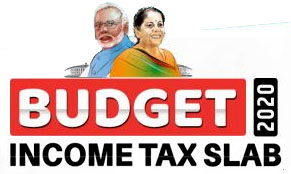Taxation of Resident Co-operative Societies from Financial Year 2020-21 ( Assessment Year 2021-22) |
Currently, the co-operative societies are taxed at the slab rates and the highest slab rate is 30% which applies when income exceeds Rs. 20,000.
Taxation Law Amendment Act inserted new sections to provide domestic companies with an option to be taxed at the concessional tax rates. To bring parity between the co-operative societies and domestic companies, a new section 115BAD has been proposed to be inserted in Income-tax Act to provide an option to the co-operative societies to get taxed at the rate of 22% plus 10% surcharge and 4% cess.
The resident co-operative societies have an option to opt for taxation under newly proposed section 115BAD of the Act. The option once exercised under this section cannot be subsequently withdrawn for the same or any other previous year.
If the new regime of Section 115BAD is opted by a co-operative society, its income shall be computed ..
-
without providing for specified exemption, deduction or incentive available under the Act.
-
The societies opting for this section have been kept out of the purview of Alternate Minimum Tax (AMT).
-
Further, the provision relating to computation, carry forward and set-off of AMT credit shall not apply to these assessees.
The option to pay tax at lower rates shall be available only if the total income of co-operative society is computed without claiming following exemptions or deductions: |
-
Deduction for units established in Special Economic Zones (SEZ) [Section 10AA];
-
Additional depreciation in respect of new plant and machinery [Section 32(1)(iia)];
-
Deduction for investment in new plant and machinery in notified backward areas [Section 32AD];
-
Deduction in respect of tea, coffee or rubber business [Section 33AB];
-
Deduction in respect of business consisting of prospecting or extraction or production of petroleum or natural gas in India [Section 33ABA];
-
Deduction for donation made to approved scientific research association, university college or other institutes for doing scientific research which may or may not be related to business [Section 35(1)(ii)];
-
Deduction for payment made to an Indian company for doing scientific research which may or may not be related to business [Section 35(1)(iia)];
-
Deduction for donation made to university, college, or other institution for doing research in social science or statistical research [Section 35(1)(iii)];
-
Deduction for donation made to National Laboratory or IITs, etc. for doing scientific research which may or may not be related to business [Section 35(2AA)];
-
Deduction in respect of capital expenditure incurred in respect of certain specified businesses, i.e., cold chain facility, warehousing facility, etc. [Section 35AD];
-
Deduction for expenditure on agriculture extension project [Section 35CCC];
-
Deduction in respect of certain incomes other than specified under Section 80JJAA [Part C of Chapter VI-A].
Where a co-operative society exercises option for availing benefit of lower tax rate under section 115BAD, it shall not be allowed to claim set-off of any brought forward losses or depreciation attributable to any restricted exemption or deduction in the Assessment Year for which the option has been exercised and for any subsequent Assessment Year.
Co-operative Society opting for section 115BAA are not eligible to set-off the Unabsorbed Depreciation attributable to additional depreciation from the Block of Asset
As co-operative society opting for section 115BAA are not eligible to set-off the unabsorbed depreciation attributable to additional depreciation, a proviso has been proposed to be inserted in Section 115BAD(3) to clarify that if any unabsorbed depreciation, relating to additional depreciation, has not been given full effect, corresponding adjustment shall be made to WDV of the block of assets in prescribed manner. |
No AMT (Alternate Minimum Tax) Credit shall be available to a Co-operative society opting for section 115BAD.
The Finance Bill proposes a consequential amendment to the provisions of Section 115JD relating to AMT Credit that this provision shall not be applicable to a co-operative society opting for new tax regimes of Section 115BAD. Thus, the AMT credit available with a co-operative society shall lapse on opting the new regime.
As it is clear that no AMT credit shall be available to a co-operative society opting for section 115BAD, the co-operative society having an unutilized balance of AMT credit must have been looking for the answers of the most important question - Whether Section 115BAD should be opted if there is a AMT Credit or not?
If a co-operative society has unutilized balance of AMT credit and it contemplates opting for Section 115BAD regime, then it is essential for the co-operative society to make some calculations before doing so in accordance with the following mechanism.
| Particulars |
Amount |
Present value of future tax liability of co-op. society if it does not opt for Section 115BAD [A] |
Xxx |
Present value of future tax liability of co-op. society if it opts for Section 115BAD [B] |
Xxx |
Present Value of Net Saving (if positive) [C = A - B] |
xxx |
|
|
 |
|
|



